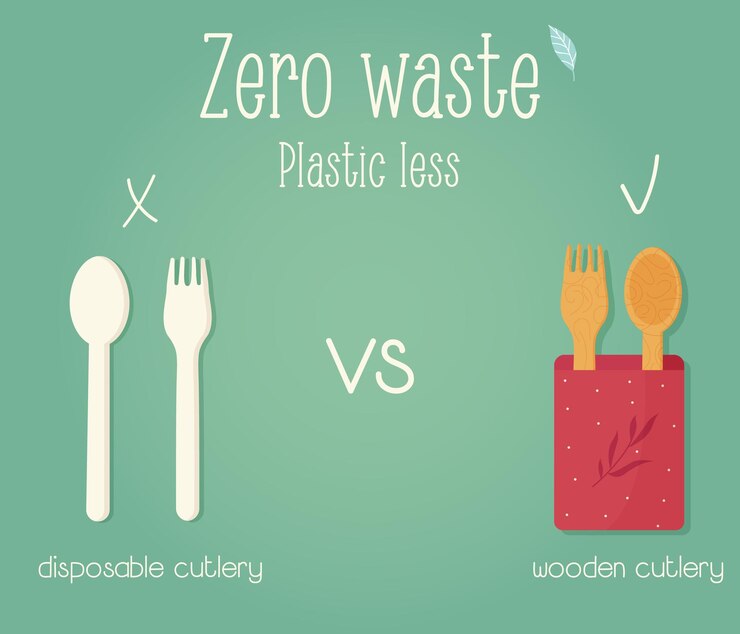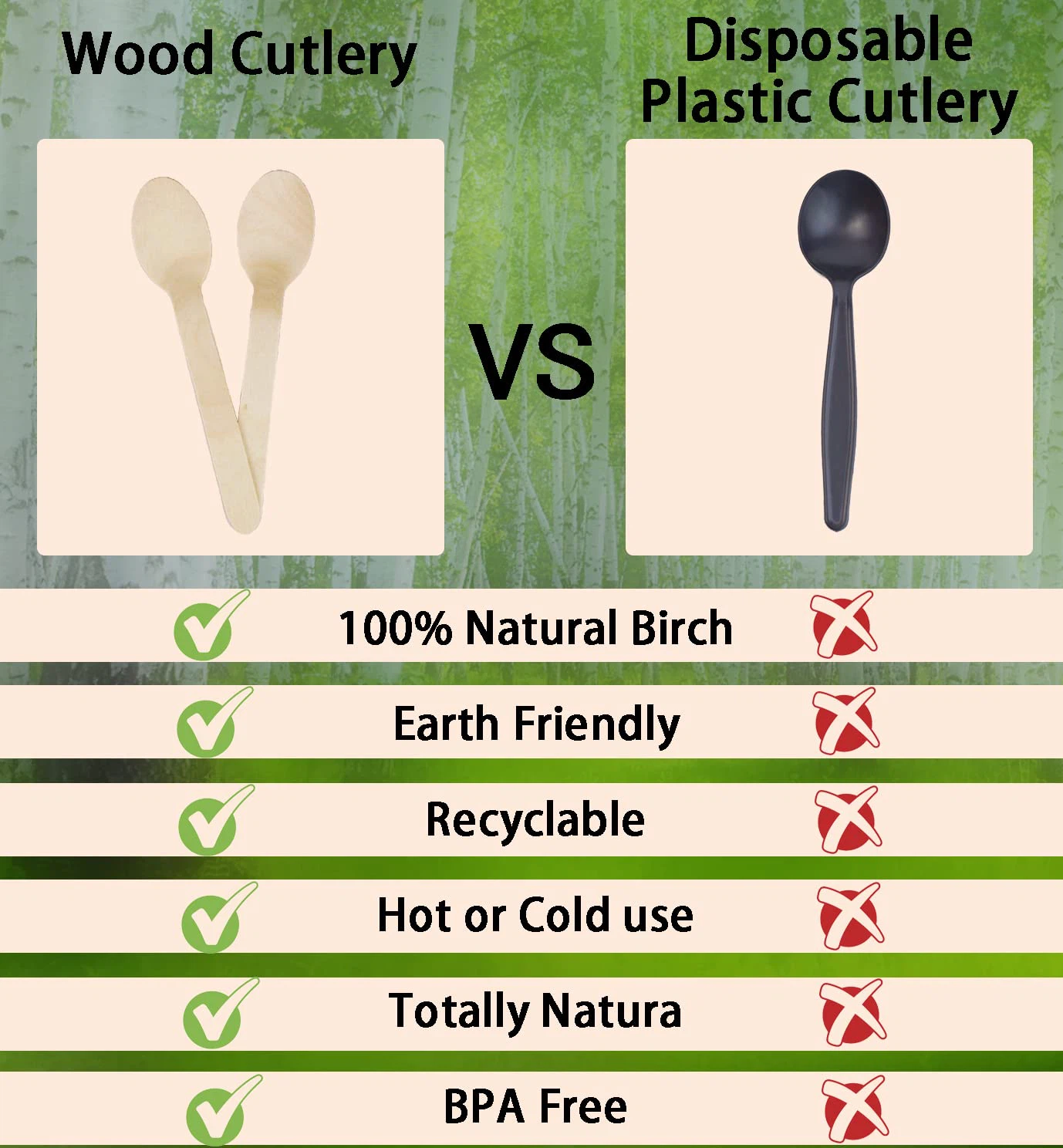In today’s world, sustainability and eco-consciousness are at the forefront of consumer and business choices. One prominent comparison often arises between wooden cutlery and plastic cutlery, particularly as businesses and consumers seek environmentally friendly options. This blog will explore the benefits, drawbacks, and environmental impacts of both materials, helping you make an informed decision while spotlighting sustainable alternatives like those offered by Stuti Exim.

1. Material Composition and Environmental Impact
Wooden Cutlery
Wooden cutlery is typically crafted from renewable resources such as birchwood or bamboo. The material is biodegradable, compostable, and sourced sustainably, minimizing its ecological footprint.
Key Features:
- Eco-Friendly: Breaks down naturally without releasing harmful toxins.
- Sustainable Sourcing: Often made from fast-growing, renewable wood sources.
- Carbon Neutral: Lower carbon emissions during production compared to plastic.
Plastic Cutlery
Plastic cutlery is derived from petroleum-based polymers such as polypropylene or polystyrene. While convenient and inexpensive, it is notorious for its environmental impact.
Key Features:
- Non-Biodegradable: Can persist in landfills or oceans for hundreds of years.
- Energy-Intensive Production: Requires fossil fuels and high energy inputs.
- Pollution Risks: Contributes to microplastic pollution in marine environments.
2. Performance and Usability
Wooden Cutlery
Wooden utensils are sturdy, heat-resistant, and safe for various food types. Their aesthetic appeal makes them ideal for high-end restaurants, catering events, and eco-friendly cafes.
Pros:
- Aesthetic and modern design.
- Splinter-free finishes for safe use.
- Heat-resistant, suitable for hot or cold dishes.
Cons:
- Slightly higher cost compared to plastic.
- Not as flexible for industrial-scale mass production.
Plastic Cutlery
Plastic utensils are lightweight, cost-effective, and highly scalable for mass production. However, they often lack durability and can warp under heat.
Pros:
- Inexpensive and easy to mass-produce.
- Lightweight and disposable.
Cons:
- Flimsy and prone to breaking under pressure.
- Environmental and health concerns with prolonged use.
3. Environmental Regulations and Market Trends
Governments worldwide are increasingly banning single-use plastics, encouraging businesses to transition to sustainable alternatives like wooden cutlery. The European Union’s Single-Use Plastics Directive and similar initiatives globally highlight this shift.
Stuti Exim, as a pioneer in eco-friendly products, aligns with these global trends, offering high-quality wooden cutlery options for sustainable dining solutions.
4. Why Choose Wooden Cutlery Over Plastic?
- Sustainability: Wooden cutlery is biodegradable and supports a circular economy.
- Brand Image: Businesses using eco-friendly products appeal to environmentally conscious consumers.
- Healthier Choice: Free from toxins or harmful chemicals.
5. Stuti Exim’s Wooden Cutlery
At Stuti Exim, we provide premium-quality wooden cutlery that is not only eco-friendly but also durable and stylish. Our products are perfect for cafes, restaurants, hotels, and other establishments seeking to make a positive environmental impact.
Key Features of Stuti Exim’s Wooden Cutlery:
- Sourced from FSC-certified sustainable materials.
- Available in various designs for different dining needs.
- Packaged in eco-friendly, recyclable materials.

FAQs
1. How is wooden cutlery better for the environment than plastic?
Wooden cutlery decomposes naturally and doesn’t contribute to plastic pollution or microplastics in the ecosystem.
2. Is wooden cutlery cost-effective?
While initially more expensive than plastic, the long-term benefits of using wooden cutlery—such as reduced environmental impact and better brand reputation—make it a worthwhile investment.
3. Does wooden cutlery affect the taste of food?
No, high-quality wooden cutlery from Stuti Exim is carefully finished to ensure no splinters or taste alteration.